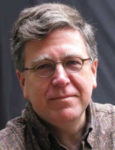 Bourbon and Milk is an ongoing series that dives into the perplexing spaces parenting sometimes pushes us, and explores the unexpected ways writers may grow in them. If you’re interested in joining the conversation or contributing a Bourbon and Milk post, query Giuseppe Taurino at: giuseppe [at] americanshortfiction.org.
Bourbon and Milk is an ongoing series that dives into the perplexing spaces parenting sometimes pushes us, and explores the unexpected ways writers may grow in them. If you’re interested in joining the conversation or contributing a Bourbon and Milk post, query Giuseppe Taurino at: giuseppe [at] americanshortfiction.org.
—
I confess, I get a little impatient when I hear graduate students with teaching assistantships—that is, students who not only aren’t paying tuition but who are being paid—say they don’t have time to write. Which is not to say that I didn’t feel exactly the same way when I was a graduate student with a teaching assistantship. But what I want to tell them now is, if they’ll only be able to write once they finish their coursework and their (underpaid) teaching, if they think that then there will be a long stretch of days with countless hours without personal or professional responsibility and a mysterious but sufficient income, they might as well stop dreaming now. And if they expect to have children?
A lot of the discussions about writing and parenting focus on time and energy: not just finding time to write, or claiming time to write, but making sure that you’re able to do your best creative work in the time you can give to it. Personally, I have no trouble balancing writing and parenting; but then, my son is 26.
When our son was six weeks old, my wife and I moved to Boone, North Carolina, where I would begin my first tenure-track teaching job—and where we would be an eight hour car ride from our nearest relative. It may not have been our wisest decision. The combination of first child, new job, and new home put pressure on both of us—no doubt on all three of us—but somehow I was able to finish a book of short stories and write a book of nonfiction. I suspect two things made that possible.
The first was that, until the year before we moved, I had been working as an adjunct at four schools simultaneously, teaching a 6/6 load in and around Chicago over an academic year that ran from early August into June. If I had stopped to add up my transportation costs, I might have found that I was barely breaking even. My new job was at Appalachian State—one school—teaching fewer classes over a shorter academic year. So while I was employed full time, I was actually teaching less.
The second thing that made the writing possible—one needs to be as honest as one can—was that, for the first two years, I didn’t do my full share of parenting. I was at a loss. I didn’t have younger siblings, never babysat, and the men in my family were the kind who joked about the absurdity of a man changing a diaper (or cooking dinner, for that matter). I felt guilty, but I was raised Catholic: guilt is what we do. Then one day I was sitting on the floor with our son, putting together a plastic train, and I said to the moist, lumpy thing beside me, “Hand me those wheels, would you?” He did—and that changed everything. Suddenly I was dealing with a person.
From that point on, I was as involved in our son’s life as any other late 20th century over-involved American parent, helping to coach the baseball and soccer teams, pitching in with the Cub Scouts, chaperoning the school field trips. I know writers who are parents who find ways to firmly shut the door to the den for hours at a time, who go off to writer’s colonies for weeks at a time, who build outbuildings or even rent offices to create physical distance between their writing selves and their family lives. I didn’t. I can’t say I was never envious, but I can say that at nearly every opportunity I had to either do more of my own work or be involved in our son’s life, I opted for fathering.
At the same time—starting when our son was 3, until he was 18—I directed and taught in the MFA Program at Warren Wilson College. While administrative work and teaching took an enormous amount of my time, one aspect of the program was particularly helpful in keeping me writing: like everyone else on the faculty, I had to give a reading every six months, and the custom is to always read from new work. Not only was I surrounded by devoted graduate students, and colleagues I respected and admired; I was supposed to be leading them, modeling the dedicated pursuit of one’s art while meeting one’s personal and professional responsibilities, the challenges of which the program—the first low-residency MFA program—had been designed to address. The stakes were high. So while the writing was slow, it was steady-ish.
Because we lived near the campus, because my wife also taught at Warren Wilson, and because the program’s semi-annual residencies completely consumed me for ten days at a time, our son started helping out at the residencies and, inevitably, hanging out with the students and faculty, some of whom were missing their own children, so doted on him. If you’re a writer, it’s easy to forget that writers are often pretty good company: smart, observant, thoughtful, funny, compassionate. So it was only natural that he started attending the readings, eager to hear the latest from Ellen Bryant Voigt and Stephen Dobyns, Heather McHugh and Kevin McIlvoy, Maurice Manning and Van Jordan, Rodney Jones and Gabrielle Calvocoressi, Robert Boswell and Antonya Nelson and Tony Hoagland, and Alan Shapiro, who later taught him, formally, at Chapel Hill.
I suppose what I’m saying is that the writing and parenting became thoroughly enmeshed. Our son heard me read, too, every six months, so we inevitably started talking about the work as work. He was in and out of the room as I wrote Maps of the Imagination, he helped photocopy the images and text before I sent it to my editor, and a few years later he went with me for part of the book tour, riding along on the drive from Iowa to Madison to Chicago, Baltimore to Atlanta. He was there for the agony (five people half-listening as a clerk kept using the store intercom to goad shoppers into joining them, mispronouncing my name every time) and the ecstasy (packed house, sell out; he’s the one who heard a woman tell her companion, “He’s so intellectual—I’m gonna get me one a them books.”)
If I’m a teacher who writes, my wife is a teacher who plays music (viola); so maybe it’s no surprise that our son became a songwriter and musician (guitar). All of these years watching anxious writers prepare to read, watching their nervousness and relief, seeing how people talked (or didn’t) afterward, informed his sense not only of performance, but integrity; it started to give him a sense of the differences between audience response and what truly matters about the work.
These days, I send him stories in progress, interested in what he sees; he sends me song demos and recordings of his shows. There’s no doubt in my mind that if my wife and I had gone childless, or if I had built myself a cabin in the woods and shut the door, I’d have written more by now; but I don’t believe I’d be happier about the way things have worked out.
I tell my graduate students what I tell myself: that whether the challenge is grading first year compositions, working another job, raising children, or all three, there will always be responsibilities, obligations, and temptations that demand time that could be used for reading and writing. Some people are, like Trollope, disciplined enough to get up in the pre-dawn and get writing done at the start of every day. Some, like a woman I know who was, at the time, a graduate student, a practicing physician, a personal trainer, and a choreographer, can somehow compose a novel by jotting individual sentences on index cards while sitting at stoplights, and between appointments. (She had her own good advice: set yourself a daily, weekly, or monthly goal that isn’t a dream, or even tremendously ambitious, but easily reachable: to write two sentences a day, for instance, four days in every week. In her experience as a trainer, when people set goals they could easily achieve, they were a) more likely to engage with them, since success was almost assured, b) more likely to over-achieve (if you write two sentences, some days you’ll probably write three or four), and c) increase their goals.)
The rest of us need to recognize the time and conditions under which we do our best creative work and protect that time as much as we can. If I put my writing last—if it’s the thing I do after lessons are planned, manuscripts are read, dishes are washed, movies are seen, my mother is called—it’s not likely to happen. But if I give myself even one good hour to draft a few paragraphs, or revise a scene, or sketch out a revision, I’m a happier and more productive person. And if I can string together some number of days, each with a good hour or so of writing, whatever I’m working on tends to stay on my mind, like a simmering pot, an idling car, making it easier to get back to boil, to get up to speed.
Ultimately, the goal isn’t to write the most pages, or publish the most books: it’s to discover how important a part of your life writing is to you, and to do everything you can to keep the parts in balance.
Peter Turchi is the author of six books and the co-editor of three anthologies. His books include A Muse and A Maze: Writing as Puzzle, Mystery, and Magic; Maps of the Imagination: The Writer as Cartographer; Suburban Journals: The Sketchbooks, Drawings, and Prints of Charles Ritchie, in collaboration with the artist; a novel, The Girls Next Door; a collection of stories, Magician; and The Pirate Prince, co-written with Cape Cod treasure hunter Barry Clifford, about Clifford’s discovery of the pirate ship Whydah. He has also co-edited, with Andrea Barrett, A Kite in the Wind: Fiction Writers on Their Craft, The Story Behind the Story: 26 Stories by Contemporary Writers and How They Work and, with Charles Baxter, Bringing the Devil to His Knees: The Craft of Fiction and the Writing Life. He currently teaches nonfiction and fiction at the University of Houston, and fiction in Warren Wilson’s MFA Program for Writers.
is the author of six books and the co-editor of three anthologies. His books include A Muse and A Maze: Writing as Puzzle, Mystery, and Magic; Maps of the Imagination: The Writer as Cartographer; Suburban Journals: The Sketchbooks, Drawings, and Prints of Charles Ritchie, in collaboration with the artist; a novel, The Girls Next Door; a collection of stories, Magician; and The Pirate Prince, co-written with Cape Cod treasure hunter Barry Clifford, about Clifford’s discovery of the pirate ship Whydah. He has also co-edited, with Andrea Barrett, A Kite in the Wind: Fiction Writers on Their Craft, The Story Behind the Story: 26 Stories by Contemporary Writers and How They Work and, with Charles Baxter, Bringing the Devil to His Knees: The Craft of Fiction and the Writing Life. He currently teaches nonfiction and fiction at the University of Houston, and fiction in Warren Wilson’s MFA Program for Writers.